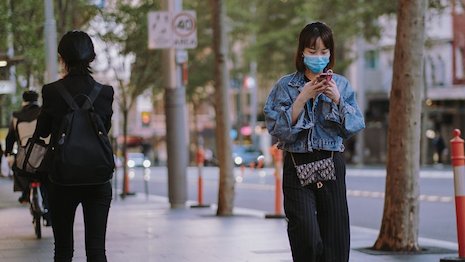
From all accounts, it seems the Chinese luxury market is bouncing back. Image credit: Luxury Society
By Mickey Alam Khan
NEW YORK – Cautious optimism for slow growth in the luxury industry during 2020 was quickly extinguished by the rapid spread of the coronavirus, with the repercussions reverberating for years to come.
In a keynote presentation at the Future of Luxury eConference, a senior partner from Boston Consulting Group explored how the luxury market has changed over the last nine months and what can be expected in the coming months and years. The pandemic has also increased or reversed some consumer patterns, which will have various impacts across sectors.
“We were set to a positive trend at the start of 2020, but it was starting to slow,” said Christine Barton, managing director and senior partner at BCG.
The presentation was based on research from Boston Consulting Group and its partner Altagamma.
Future of Luxury eConference was produced by Luxury Daily
Updated forecasts
Pre-pandemic projections had the luxury market growing at rate of 3 percent year-over-year from 2020 through 2022. Among the biggest luxury markets, China was expected to grow by 10 percent while the United States was forecast to grow a more modest 1 percent.
“Even pre-COVID, we were starting to see recessionary behaviors in developed markets,” Ms. Barton said, noting concerns that the U.S. in particular was entering an economic recession.
In a matter of months, the expectations have changed completely as a result of the pandemic. Economic instability has impacted even true luxury consumers, with 57 percent delaying or refraining from making purchases and investments they had planned for 2020.
 The pandemic will have a severe impact on the luxury business. Image credit: Boston Consulting Group
The pandemic will have a severe impact on the luxury business. Image credit: Boston Consulting Group
The global economy as a whole is forecast to shrink by 6 percent, a larger contraction than the 3 percent decrease in 2009 during the Great Recession. China, which has begun its recovery, is the only country whose luxury market is expected to grow in 2021 and 2022.
For COVID-19-hit luxury groups that have seen their European and North American stores record a trickle of shoppers this year – if their stores were open at all – boutiques in China have propped up total revenue to a significant degree this year.
China was virtually the only bright spot for both LVMH and Kering, as global revenue for the two luxury giants in the second quarter of the year plummeted 38 percent and 43.7 percent, respectively (
see story).
“China’s actual performance could be a big factor in the overall luxury recovery,” Ms. Barton said.
Countries including the U.S. will continue to recover at their own pace as they had different baselines. Analyses also show that spending is closely tied to local coronavirus case counts, rather than government restrictions — further impetus that a true economic recovery stars with managing the health crisis.
Due to the likelihood of more localized shutdowns in the coming months, it is likely that economic health will continue to fluctuate.
Sector shifts
Ms. Barton also reiterated that channels and sectors are recovering at different rates, as affluents have changed their spending habits based on lockdowns.
Affluents have been more likely to stay home and less likely to be on the pandemic’s “frontlines,” which has driven declines in spending. Increased digital spending has not closed the gap from reduced in-person spending.
Formalwear, handbags and accessories are some of the categories that have seen declines, even as leather goods had been one of the fastest-growing categories prior to the pandemic. Categories that lend themselves to self-expression are up, including casual wear and beauty, driven by skincare spending.
In the U.S., the home category, including spending on appliances and furnishings, has seen the largest reversal from planned decreases in spending to being recharged by COVID as people spend more time inside.
Experiential categories, such as travel and dining, are likely to take the longest to recover. It is likely that personal luxury goods, excluding automotive and yacht purchases, will increase their market share, but it remains to be seen which categories will rebound the most.
In recent years, many affluents had been more apt to spend on experiential luxury, including travel spending. Now without the ability to do so, some may shift their spending to other luxury sectors.
Research from De Beers found that more than two-thirds of Americans have canceled travel plans in 2020, with 55 percent of those respondents having extra spending money as result of those cancelations. Without the ability to travel, one in eight respondents would opt to mark a special occasion with diamonds (
see story).
“Right now we don’t know the substitutions spend from experiential spend,” BCG’s Ms. Barton said.
 From all accounts, it seems the Chinese luxury market is bouncing back. Image credit: Luxury Society
From all accounts, it seems the Chinese luxury market is bouncing back. Image credit: Luxury Society
 The pandemic will have a severe impact on the luxury business. Image credit: Boston Consulting Group
The pandemic will have a severe impact on the luxury business. Image credit: Boston Consulting Group